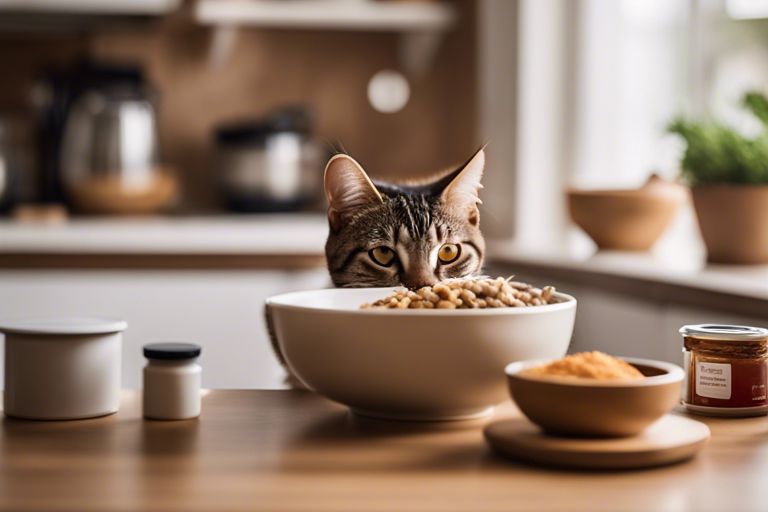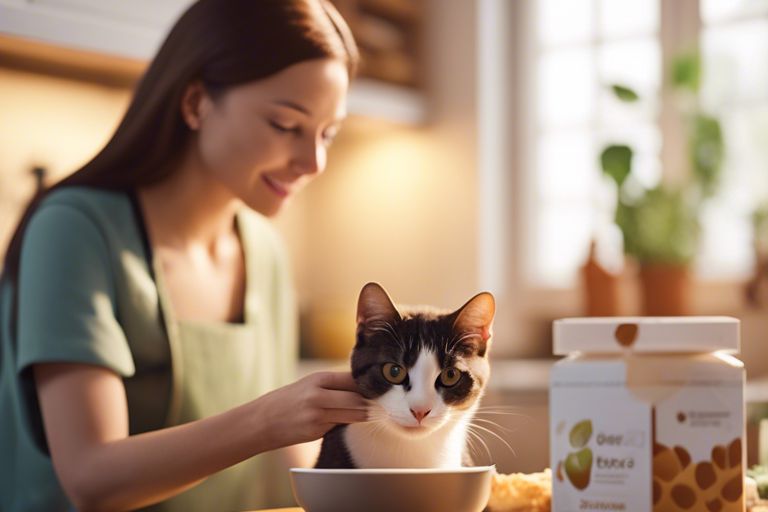If you’ve noticed that your feline friend is experiencing digestive issues, it’s important to address them as soon as possible. Cats are notorious for hiding their discomfort, so it’s up to you to be proactive in managing their digestive health. From hairballs to indigestion, there are several common issues that can affect your cat’s digestive system. In this blog post, we will discuss effective strategies to help alleviate your cat’s digestive issues and improve their overall well-being.
Key Takeaways:
- Monitor your cat’s eating habits: Keep an eye on what your cat is eating and any changes in their appetite or behavior related to mealtime.
- Provide a high-quality diet: Choose a cat food that is easily digestible and free from artificial additives, fillers, and by-products.
- Regular visits to the veterinarian: Schedule regular check-ups with a vet to monitor your cat’s digestive health and address any potential issues early on.
- Slowly introduce new foods: When introducing new foods to your cat’s diet, do so gradually to prevent digestive upset.
- Offer digestive supplements: Consider incorporating probiotics or digestive enzymes into your cat’s diet to support their digestive health.

Recognizing Digestive Problems
The first step in helping your cat with digestive issues is to recognize when there is a problem. Paying attention to your cat’s behavior and physical symptoms is crucial in identifying potential digestive issues.
Symptoms of Digestive Issues
The symptoms of digestive issues in cats can vary, but some common signs to look out for include vomiting, diarrhea, constipation, loss of appetite, and weight loss. If you notice any of these symptoms in your cat, it’s important to take them seriously and monitor their condition closely.
When to Consult a Veterinarian
If you notice persistent or severe digestive issues in your cat, it’s important to consult a veterinarian as soon as possible. Your cat’s health and well-being should be your top priority, and a vet can provide the necessary expertise and care to help address the root cause of the problem. Don’t hesitate to seek professional help if you have concerns about your cat’s digestive health.
Dietary Management
Clearly, diet plays a crucial role in managing your cat’s digestive issues. By providing the right nutrients and choosing appropriate foods, you can help support your cat’s digestive health and alleviate discomfort.
Essential Nutrients for Digestive Health
When it comes to dietary management for digestive issues, it’s important to focus on providing your cat with essential nutrients that support digestive function. This includes fiber, protein, and probiotics. Fiber helps regulate digestion and prevent constipation, while high-quality protein supports overall health and the maintenance of a healthy digestive system. Probiotics are beneficial bacteria that can help promote a healthy gut microbiome, which is essential for proper digestion and nutrient absorption.
Recommended Foods and Feeding Practices
When selecting foods for your cat with digestive issues, look for options that are easily digestible and free from artificial additives and preservatives. Avoid feeding your cat foods that are high in fat, as this can exacerbate digestive problems. Instead, opt for high-quality, balanced diet specifically formulated for digestive health. Additionally, consider feeding smaller, more frequent meals to help ease the digestive process and prevent overload.
Medical Interventions
Not all digestive issues in cats can be resolved with diet and lifestyle changes. In some cases, medical interventions may be necessary to help your cat overcome digestive problems. If you have already tried natural remedies and your cat’s condition is not improving, it may be time to consider seeking professional veterinary advice. You can learn more about natural remedies for cat digestion in Natural Remedies for Cat Digestion.
Common Medications and Supplements
If your cat is experiencing ongoing digestive issues, your veterinarian may prescribe medications to help manage their symptoms. Common medications and supplements for digestive issues in cats may include probiotics, digestive enzymes, and medications to reduce inflammation in the digestive tract. Your veterinarian will be able to recommend the most suitable treatment plan for your cat based on their specific condition.
Surgical Treatments and Considerations
In severe cases of digestive issues, surgical treatments may be necessary to address the underlying problem. This could include removing an obstruction in the digestive tract, treating an ulcer, or repairing a hernia. It’s important to discuss the potential risks and benefits of surgery with your veterinarian to make an informed decision about the best course of action for your cat.
Home Care and Prevention
Keep a close eye on your cat’s diet and routine to help prevent digestive issues. Feed your cat a high-quality, easily digestible food that is suitable for their age, size, and activity level. Make sure to provide fresh, clean water at all times to keep your cat hydrated and support healthy digestion.
Creating a Stress-Free Environment
Creating a stress-free environment for your cat is essential for maintaining good digestive health. Stress can exacerbate digestive issues in cats, so it’s important to provide a calm, safe space for your cat to relax. Ensure your cat has a quiet, comfortable area to retreat to when they need a break. Additionally, implementing interactive play and providing enrichment activities can help reduce stress and anxiety in your cat.
Regular Exercise and Its Benefits
Regular exercise is crucial for maintaining good digestion in your cat. Physical activity helps promote healthy bowel movements and prevents constipation. Encouraging your cat to play and exercise regularly can also help reduce stress and anxiety, which can contribute to digestive issues. You can engage your cat in interactive play sessions and provide toys that encourage physical activity.
Remember, maintaining a stress-free environment and ensuring regular exercise are essential for preventing digestive issues in your cat. Incorporating these practices into your cat’s daily routine can significantly improve their digestive health and overall well-being. Be mindful of any changes in your cat’s behavior or digestive patterns and consult your veterinarian if you have any concerns.
How can I help my cat with digestive issues?
Hence, it is important to closely monitor your cat’s diet, ensuring they are receiving a balanced and nutritious meal. Adding probiotics to their diet can also help improve their digestive health, as well as providing them with plenty of water to stay hydrated. Additionally, consider reducing stress as it can have a negative impact on their digestion. Lastly, consult with your veterinarian to rule out any underlying medical conditions that may be causing your cat’s digestive issues.
FAQ
Q: What are some signs that my cat may be experiencing digestive issues?
A: Some signs that your cat may be experiencing digestive issues include vomiting, diarrhea, constipation, loss of appetite, weight loss, and excessive gas. If you notice any of these symptoms, it is important to consult with a veterinarian.
Q: What can I do to help my cat with digestive issues?
A: There are several things you can do to help your cat with digestive issues. These include feeding a high-quality, easily digestible diet, providing access to fresh water at all times, ensuring your cat gets enough exercise, and minimizing stress. It is also important to follow any recommendations provided by your veterinarian.
Q: When should I seek veterinary care for my cat’s digestive issues?
A: If your cat is experiencing persistent digestive issues, such as vomiting or diarrhea for more than 24 hours, or if they are showing signs of dehydration, it is crucial to seek veterinary care. Additionally, if your cat’s symptoms are accompanied by other concerning signs, such as lethargy or abdominal pain, it is important to consult with a veterinarian as soon as possible.

Jayley, a devoted cat enthusiast, also writer for other cat blog as well. She aims to dedicated to providing comprehensive information, insights, and advice on everything you’d ever want to know about our whiskered companions.
